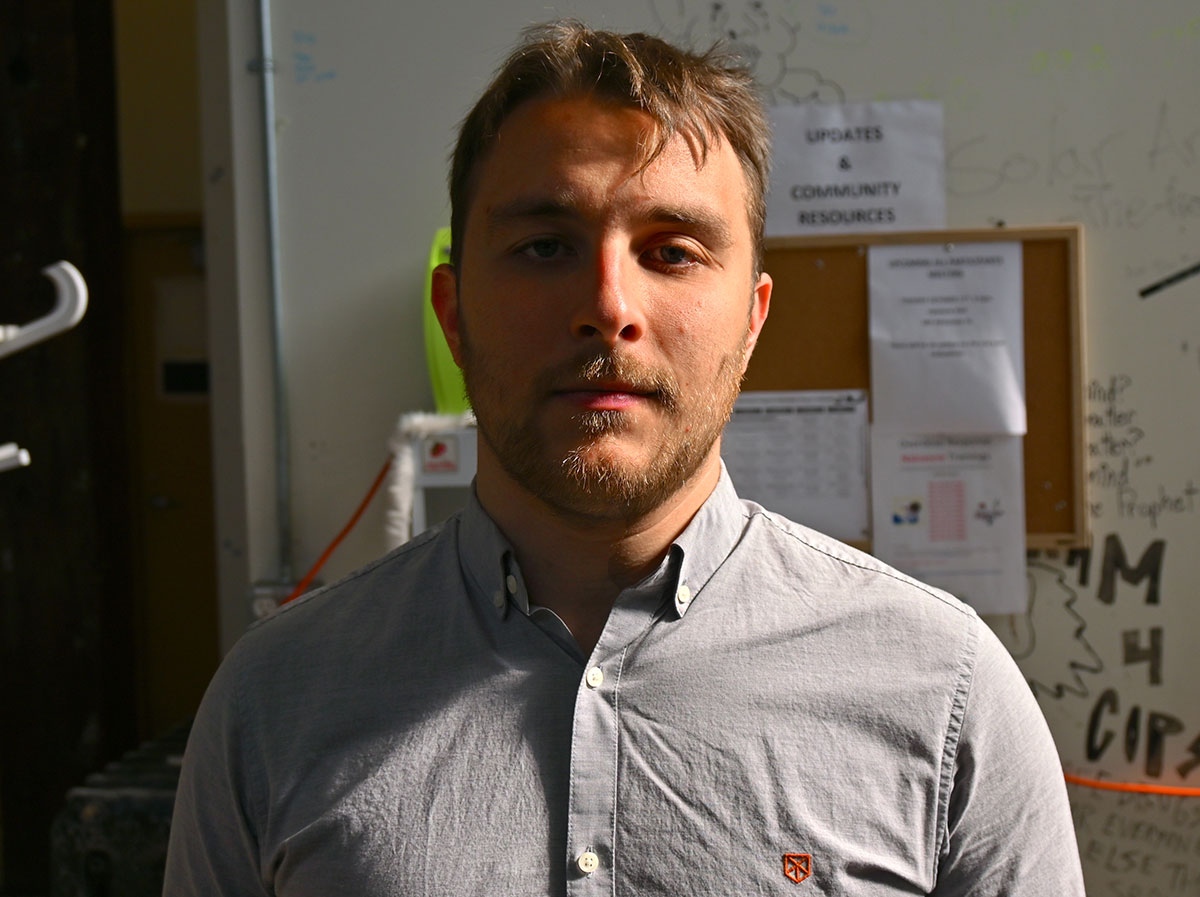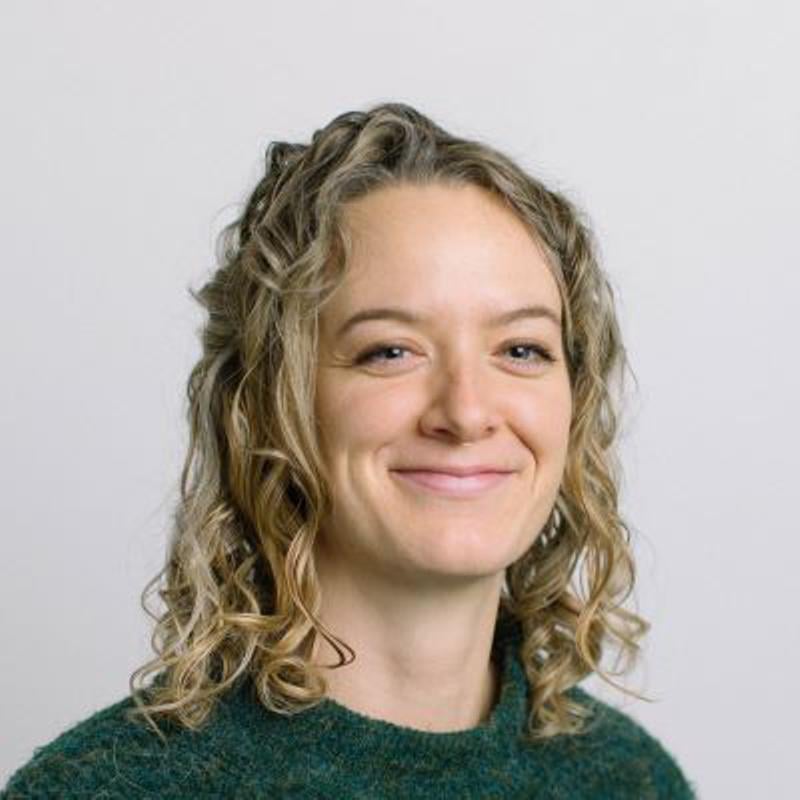A compassion club in Vancouver’s Downtown Eastside that has been breaking the law in order to protect its members has proof its harm reduction initiative is working.
Last week the Drug User Liberation Front published a study based on its first year of operation that found quality of life improved for many of its users, with people reporting fewer overdoses and negative interactions with police, less hospitalization and less drug-related violence.
Since 2022, DULF co-founders Jeremy Kalicum and Eris Nyx have been buying large quantities of illicit cocaine, heroin and methamphetamines off the dark web, rigorously testing the drugs to ensure they know the purity of the substance and selling the drugs to compassion club members at a below-market cost.
This allows people who use drugs to know what substances they are taking, which helps reduce the risk of a toxic drug overdose, Kalicum told The Tyee.
Illicit street drugs in B.C. and Canada have been rising in potency over the last decade and today are often mixed with fentanyl or even more potent analogues such as carfentanil, making the illicit supply unpredictable and dangerous.
The BC Coroners Service says fentanyl and fentanyl analogues were detected in 85 per cent of toxic drugs deaths in 2023, 82 per cent in 2022 and 86 per cent in 2021.
The coroners office also says benzodiazepines were present in almost 38 per cent of toxic drug deaths in 2022. Benzodiazepines complicate harm reduction initiatives like take-home naloxone kits because naloxone can reverse only the effects of opioids, not benzodiazepines.
Toxic drug deaths are the leading cause of death in B.C. for people aged 10 to 59, accounting for more deaths than homicides, suicides, accidents and diseases combined. On Monday the BC Coroners Service reported 174 people died from toxic drugs in August, meaning 1,629 people have been killed in the province so far this year.
The province declared a public health emergency in April 2016 owing to toxic drug deaths. Since then, 12,929 people have died in B.C. because of toxic unregulated drugs.
Kalicum said DULF has existed in some form since 2020, when he and Nyx realized toxic drug deaths were going to continue to increase unless everyday people stepped in and started doing something about it.
In June 2020 DULF handed out cocaine that had been tested for contaminants like fentanyl and benzodiazepines. No one overdosed.
While some safer supply options exist in B.C., they are not available for all the drugs people use. Moreover, only about five per cent of people with diagnosed opioid use disorder have accessed safer supply of opioids through government programs.
DULF offers compassion club members a tested version of the drugs they were already using, Kalicum said.
Since June 2020, he said, DULF has maintained a tentative relationship with government.
What DULF does isn’t legal, but Kalicum said he’s not sure if a judge would convict them of a crime. Their “intent” and the “necessity” of the compassion club make what they do a “grey zone,” he said.
The Vancouver Police Department wouldn’t say specifically if it supported DULF.
“The VPD supports a number of harm reduction strategies and we believe these strategies could reduce lives lost due to drug toxicity if used in conjunction with treatment, education and appropriate enforcement,” Sgt. Steve Addison, VPD media relations officer, said in an email.
Addison added that while police focus their drug enforcement efforts on violent and organized crime that produces and traffics drugs that fuel the overdose crisis, “anyone who breaks the law... could face charges.”
After several DULF giveaways without any arrests, Kalicum said, he and Nyx wanted to show that giving people access to clean street drugs wouldn’t “make the sky fall down.”
“But it was all just theory because at that point it had never been done before,” Kalicum said.
So they started the compassion club and started gathering evidence.
Members have to be over 19 years old and have a history of drug use and affiliation with drug user networks in Vancouver. The compassion club is open four days a week for a total of 24 hours and has an on-site overdose prevention site open to all members. Members are allowed to buy up to seven grams per day and up to 14 grams per week but almost never actually purchase that much, Kalicum said.

The Tyee agreed to not publish the location of the club owing to safety concerns.
“Now that we’ve been doing this for a year, we see our hypothesis was correct and that people die less, people overdose less, people do less crime and have less adverse health effects when they know what they’re using and can get it in a more controlled environment,” Kalicum said.
The yearlong study followed 43 compassion club members, tracking people’s well-being before and after joining.
There were zero overdoses caused by DULF substances and a 35 per cent reduction in all overdoses during the year, according to the study. For people who inject drugs there was a 57 per cent reduction in overdoses.
During a followup interview in August, three-quarters of the participants said they used illegal street drugs the same day they visited the compassion club.
Harm reduction is about reducing people’s use of dangerous substances as much as possible. Even when participating in programs like the one offered at Crosstown Clinic, where clinic members get access to free daily injectable heroin, people still occasionally use street drugs.
The DULF study found there was a 48 per cent decrease in negative police interactions after people had gained access to the compassion club, a 50 per cent decrease in hospitalizations and a 39 per cent reduction in drug-related violence.
Around half of participants also reported how the program helped them reduce their use of the illicit market, reduce their risk of overdose, improve pain management and improve mental and physical health.
The BC Centre on Substance Use helped DULF set up the research project, Kalicum said.
The BCCSU told The Tyee it supported the evaluation of DULF’s study. In an email, a spokesperson said this “includes data collection and qualitative interviews with program participants.” The findings will be published once the peer-review process wraps up, they added.
DULF is funded by donations, and Kalicum said it “doesn’t take a ton of funding” to operate because the drugs are sold at cost.
Kalicum calculates that by buying in bulk and selling at cost, DULF has taken $100,000 out of the hands of organized crime during its first year. If DULF can make a $100,000 dent with just 50 compassion club members, imagine what the government could do with a pharmaceutical deal and hundreds of compassion club members, he said.
Safer supply programs have come under fire recently from Conservative politicians, who raise concerns that free hydromorphone is being “diverted” when people sell doses and that some of those pills are being bought by teenagers.
On Monday the BC Coroners Service said post-mortem testing found hydromorphone in three per cent of overdose fatalities so far this year, compared with fentanyl in 85 per cent of fatalities.
“It should also be noted that safer supply accounts for only 14 per cent of hydromorphone prescribing in the province, and the vast majority of hydromorphone prescribing is for pain-related purposes,” the BC Coroners Service said in a statement.
One way to avoid diversion is to have people buy the substance rather than be given it for free, as they do through DULF’s compassion club, Kalicum said. If members were selling their compassion club drugs, they would likely be buying as much as they can each week, but DULF isn’t seeing that, he said.
“We ask about diversion in our interviews,” he added. “People say they do some form of diversion but not for profit. They’ll divert to friends or family to be friendly or because they want the people they know to be safe.”
Kalicum said he’d like to see another organization repeat the experiment to try to confirm DULF’s findings. Offering the program in a single-room occupancy hotel could be a great place to start because staff can help track overdoses and medical responses, he said.
He’d also like to see vending machines “designed like security vaults” that could dispense pharmaceutical-grade drugs to help people reduce their use of the illicit market.
Finally, he said, he really wants to see the government take over the compassion club so he can go back to school to become a doctor.
Running a compassion club is a highly underpaid and unglamorous job, Kalicum said. “But there’s a moral imperative to keep doing it. I don’t know who would do it if we stopped.” ![]()
Read more: Health, Rights + Justice
















Tyee Commenting Guidelines
Comments that violate guidelines risk being deleted, and violations may result in a temporary or permanent user ban. Maintain the spirit of good conversation to stay in the discussion and be patient with moderators. Comments are reviewed regularly but not in real time.
Do:
Do not: